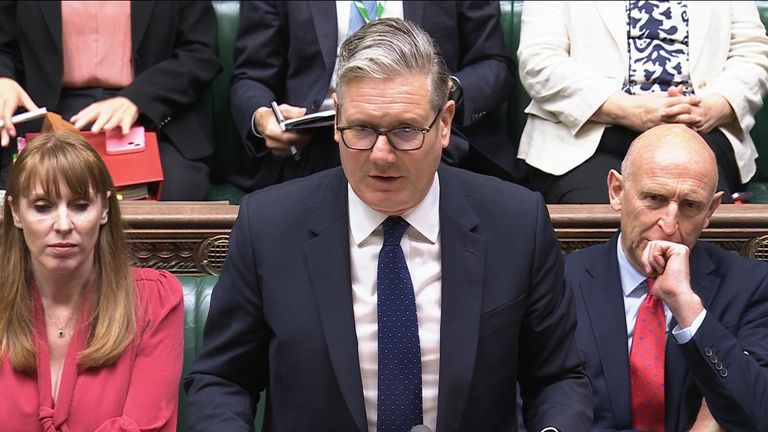My ramblings...
Rethinking the Political U-Turn: A Sign of Weakness or Strength?
2 minute read - 27/06/2025
We’ve become strangely obsessed with the term U-turn in politics. It’s almost always used pejoratively — a quick headline, a social media jab, an easy target for criticism. The moment a political leader revises a position, the media leaps in: “weak,” “in disarray,” “lost control.”
But I think that’s a serious misreading of what’s often going on. In many cases, what’s labelled a U-turn is not weakness — it's strength.
No leader gets everything right all the time. Sometimes, decisions are made with limited foresight, without consulting the right people, or without full appreciation of their impact. The real test of leadership is not perfection; it’s the willingness to reflect, reassess, and change course when needed.
That takes courage. It’s far easier — and far more dangerous — to stubbornly cling to a flawed decision out of pride or fear of backlash. In contrast, pausing to listen, recognising mistakes, and adapting to do better is, in my view, a far more responsible and admirable approach.
What’s more, a leader who is surrounded by colleagues confident enough to speak up — to challenge, question, and suggest change — is a leader at the head of a healthy party. That’s what democracy should look like: open dialogue, constructive criticism, and decisions that evolve in response to real-world consequences, not just rigid ideology.
I say this in light of the commentary we've seen this week around the Labour Party and Keir Starmer. I'm not going to delve deeply into the media frenzy or repeat the headlines accusing him of losing control or suggesting his party is in free fall. Frankly, I think that noise misses the point.
What I see is a leadership willing to adapt — to recognise that the journey to the right outcome isn’t always a straight line. That isn’t weakness. It’s mature, responsive leadership.
And in today's political climate, that's something we should value far more than we do.


On bunting, food banks, and what really matters
3 minute read - 15/06/2025
Whilst it is perfectly reasonable to have opinions about bunting — and I’m sure valid arguments can be made both for and against — it was not this decorative diversion that caught my attention in a recent news article. No, what stood out to me was something altogether more troubling, nestled within the quotes of an individual who had recently stood for local election.
Among the rhetoric was this line: “I had to deal with their parish council where they felt a soup kitchen and food bank was a suitable alternative to a shop where people can have actual choice.”
That, to me, said far more than anything about bunting ever could. In those few words lies an attitude I find deeply disquieting. Is that really where we are — that supporting a food bank is framed as some sort of lesser, inferior option, a poor substitute for “proper” retail? Is this genuinely reflective of public sentiment? I sincerely hope not. Because if that’s the majority view, then I’m proud to be an outlier.
What the article should have focused on — indeed, what should have been headline news — is the simple, vital truth that a local parish council chose to back a food bank. That decision deserves recognition and applause. It reflects a commitment to compassion and a clear-eyed understanding of the hardships facing many families today. It was not an act of settling for second-best, but of responding to need with decency.
Let us not forget: the people who are able to exercise “choice” in a local shop are also, more often than not, the people with cars, broadband connections, the means to shop online or travel elsewhere. For them, a shop is one of many options. But for those relying on a food bank, such choices are a luxury far out of reach.
There’s an old saying: “Give a man a fish, and he eats for a day; teach a man to fish, and he eats for a lifetime.” I reference this not to suggest that food banks are the endpoint — far from it — but to highlight the broader issue. Food banks, in this analogy, are the fish. They are the immediate sustenance, the emergency response. What we must strive toward, collectively, are the fishing rods — the long-term solutions that empower people, address root causes, and enable genuine independence.
That is not a quick fix. It is not a neat policy lever or a soundbite. It’s hard, structural work. But in the meantime, let us be absolutely clear: food banks save lives. They are not symbols of failure, but of society stepping up when systems have let people down.
Over the past two Christmases, I’ve personally organised food bank collections for our local charity, Doorway. I’ve seen first-hand the remarkable work that Sarah and her team do, day in and day out. They bring dignity, warmth, and relief to those in crisis. And I will continue to support them for as long as they are needed — though, like them, I hope for the day they are not.
There is much to be done. And yes, from the vantage point of local leadership, the levers of national change can feel far away. But we still have a role — not just in policy, but in the tone we set, the values we uphold, and the messages we amplif
So let’s stop pretending that supporting a food bank is somehow a quaint inconvenience to village life. Let’s reject the lazy narratives that sneer at compassion. And let’s get on with the real work of helping those who need us most — not because it’s easy, but because it’s right.


The sunk cost fallacy - the first stitches in the Brexit wound
2 minute read - 19/05/2025
The sunk cost fallacy is a well-documented psychological phenomenon where individuals are reluctant to abandon a strategy or course of action because they have already invested significant time, money, or resources into it—even when clear evidence shows that moving on would be the better choice. This mindset traps people in harmful decisions, driven not by logic or future benefit, but by a stubborn attachment to past commitments.
Look at any recent polling, and it becomes abundantly clear that a majority of those surveyed would not have voted for Brexit if given the chance again. And why is that? Because with the benefit of hindsight, the costs have become painfully obvious while the promised benefits remain elusive. It’s worth considering that in almost every other walk of life, when someone injures themselves—perhaps through an accident or a poor decision—they don’t simply sit there and refuse treatment out of pride or denial. They seek help. They try to heal. Why, then, is our political class, and some sections of our society, so unwilling to do the same when it comes to this self-inflicted wound?
Rightly or wrongly, a hastily conceived and poorly judged referendum delivered a wafer-thin decision to leave the European Union. I say poorly judged because a matter of such profound constitutional and economic consequence should never have been settled by a simple yes or no referendum. It was, in truth, an early warning sign of a Conservative Party more interested in internal appeasement of its hard-right factions than in governing responsibly for the good of the nation.
The public, having been at best misled and at worst outright lied to, are now coming to terms with the reality: the so-called benefits of Brexit—be it economic prosperity, reduced migration, or greater global influence—have either failed to materialise or were based on deliberately misleading narratives from the outset.
I was recently called “undemocratic” for applauding the government’s success in landing a deal with the EU to improve food trading arrangements. But let’s be clear—what is undemocratic about that? Wasn’t the very argument during the referendum that we would secure new and better trade deals to replace the comprehensive trade arrangements we had as part of the EU? This latest agreement is not some backdoor re-entry into the Union; it’s simply a pragmatic step to repair the damage caused by severing ties without an adequate plan. As I said earlier, if Brexit was a self-inflicted injury, this deal is merely the first stitch in a gaping wound—an acknowledgment, however small, that we cannot simply let the wound fester out of stubbornness or misplaced national pride.
The old saying goes that pride comes before a fall, and perhaps it’s time we collectively learn that lesson. There is no shame in admitting when a mistake has been made. True leadership—and indeed true maturity—comes from having the courage to change course when the evidence demands it. It is not weakness to say, “We got this wrong.” It is wisdom. And it is the first step toward healing the divisions and economic harm this country continues to endure.


If you stand for nothing - Leadership in a 21st century world
2 minute read - 19/05/2025
One of my favourite musicals is Hamilton, and a line that has always deeply resonated with me is: “I’d rather be divisive than indecisive.” Why does this strike such a chord with me? Because in 2025, if you want to be a leader—or if you truly want to enact meaningful change—you cannot afford to sit on the fence. Indecision is, in many ways, a decision in itself: a decision to accept the status quo, to let opportunities for progress slip by, and to deny your community the leadership it deserves.
Think about it—name me three Prime Ministers from the last 100 years. I’d wager many people would quickly say Winston Churchill, Margaret Thatcher, or Tony Blair. I doubt many would mention John Major or Theresa May. Some might say Boris Johnson, but likely not for the reasons that support my point here.
The leaders we most remember—whether we agreed with them or not—were those who stood for something clear and unmistakable. They had conviction. They didn’t shy away from difficult decisions or controversial positions. They were clear about what they believed in, and equally clear about what they stood against. That clarity, that willingness to lead with principle rather than popularity, is what defined their legacies.
Now, I’m fully aware that I’m operating at one of the lowest levels of civic leadership. But I believe the same values apply. Having strong principles, a clear message, and the courage to consistently stand by them is just as important here, in our community, as it is on the national or global stage.
There will undoubtedly be times when I become passionate—perhaps even fiery—about issues that matter to me and, I believe, to our town. There may be moments when I take positions that are unpopular or uncomfortable. But I’d rather risk unpopularity than risk being ineffective. Leadership isn’t about always saying what people want to hear; it’s about saying what you believe needs to be heard, and then working tirelessly to turn that belief into action.
I don’t yet fully understand all that being a town councillor might mean, or what it will ultimately allow me to achieve—or indeed, where it might limit me. But over the next four years, I hope to be remembered as someone who was prepared to be divisive when it mattered most, someone who wasn’t afraid to lead with conviction on issues that shape the future of our town.
As Lin-Manuel Miranda so powerfully put it, “If you stand for nothing… what’ll you fall for?”

